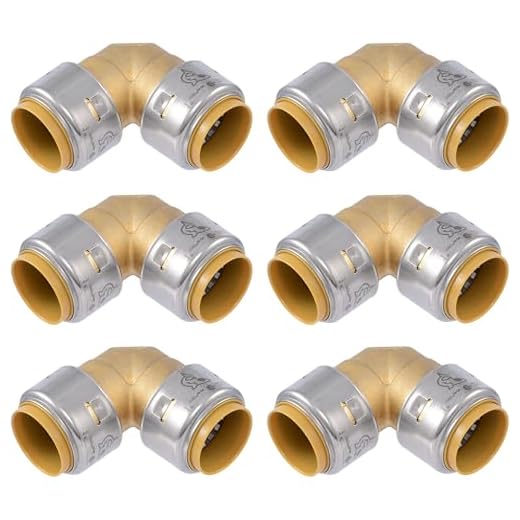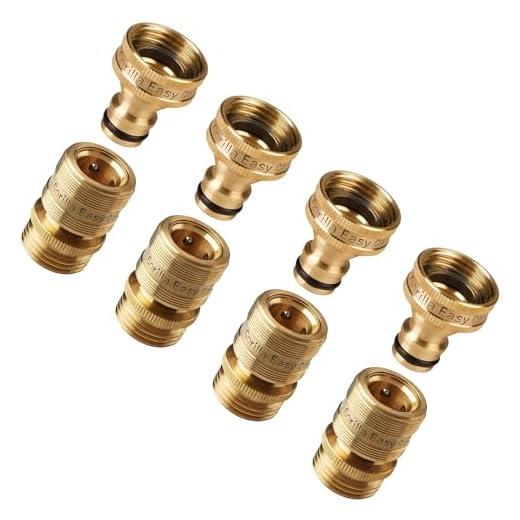

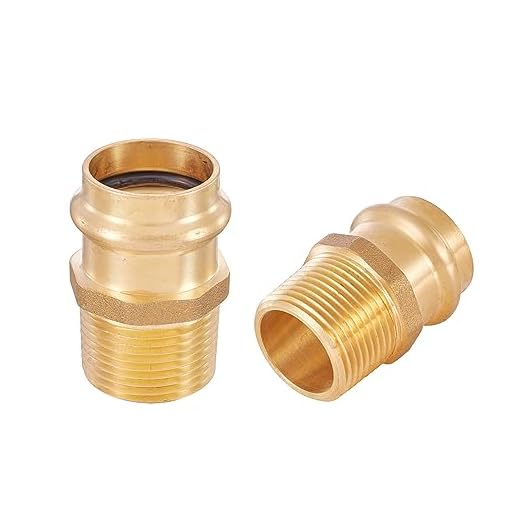

For those wanting to extend the reach of their cleaning equipment without the need for additional purchases, attaching multiple cleaning lines is a viable solution. Using compatible connectors, ensure a secure fit to prevent leaks and maintain optimum water pressure throughout the setup.
Firstly, consider the diameter of each line, as mismatched sizes can lead to reduced performance. Standard hoses often come in 1/4-inch or 3/8-inch widths. Use appropriate adaptors to bridge any size differences.
Additionally, it’s crucial to assess the pressure rating of each line. Select hoses rated for similar or higher pressures to ensure safety and functionality. A lower-rated line could rupture under high pressure, potentially causing damage or injury.
Lastly, regularly inspect connections for wear and tear, ensuring that fittings are tightened securely. Preventative maintenance can drastically improve the longevity and effectiveness of your cleaning setup.
Joining Two Hose Lengths
Yes, extending reach is possible through the use of specialized connectors. These fittings allow for a seamless bond, facilitating longer distances without compromising water flow or pressure. Always ensure compatibility; check diameter specifications to avoid leaks or performance issues.
Recommended Types of Connectors
Choosing the right connector is crucial for optimal functionality. Common types include:
| Connector Type | Description |
|---|---|
| Quick Connect | Allows for easy on/off attachment, ideal for quick changes. |
| Barbed Fittings | Available in various sizes, these provide a tight seal with hose clamps. |
| Screw-on Connectors | Threaded design ensures a secure joint, reducing the risk of disconnection. |
Best Practices for Usage
To maximise performance, adhere to these guidelines:
- Inspect for wear; replace worn connectors to maintain pressure.
- Ensure hoses are rated for the intended pressure range.
- Use Teflon tape on threaded connectors for added sealing.
Understanding Pressure Washer Hose Types
The functionality of a cleaning device largely depends on the type of tubing utilized. Selecting the appropriate variant is paramount for optimal performance. High-pressure tubing is typically rated for 3000 PSI or more, suited for heavy-duty tasks. For light cleaning jobs, lower-rated hoses (around 1500 PSI) suffice, reducing wear and tear on equipment.
Material Differences
Common materials include PVC and rubber. PVC is lightweight and more affordable but may not withstand higher pressures effectively. Rubber options, while heavier, offer superior durability and resistance to abrasion, making them ideal for long-term use. Choosing between them hinges on the specific demands of your cleaning tasks.
Length Considerations
Length impacts both convenience and performance. Longer tubing provides flexibility in movement but may lead to a reduction in water pressure, particularly over substantial distances. Standard lengths range from 25 to 100 feet, allowing users to match their requirements. Always consider the balance between reach and pressure retention for different cleaning scenarios.
Required Connectors for Hose Coupling
For joining high-pressure lines, specific connectors are necessary. Always opt for fittings designed to withstand the rigours of high-pressure applications. Common options include quick-connect couplings, threaded connectors, and barbed fittings. Each serves unique functions and must match the diameter of the hoses being joined.
Quick-connect couplings allow for speedy attachment and detachment, perfect for situations requiring frequent changes. Ensure the coupling’s specifications align with the hose’s PSI rating for optimal safety. Threaded connectors are more permanent, offering a secure fit but requiring proper sealing to prevent leaks. Teflon tape can aid in achieving a watertight seal with these connectors.
Barbed fittings require a hose clamp for secure attachment, ideal for heavier-duty tasks. When selecting connectors, consider the material compatibility with the hoses; brass, stainless steel, and durable plastics are generally safe choices. Adhering to these specifications ensures a successful and safe assembly, enhancing performance.
Steps to Join Two Pressure Washer Hoses
Here’s how to unite different lengths of cleaning hoses effectively:
- Assess Compatibility: Ensure both attachments are compatible in size and threading. Most commonly, M22 and 3/8-inch connectors are prevalent.
- Gather Necessary Tools: Have a wrench handy for tightening. Additionally, a hose connector or coupler may be required based on the ends of the hoses.
- Prepare the Hoses: Inspect both pieces for damage or wear. Clean the threads to ensure a tight fit and avoid leaks.
- Attach the Connector: Firmly screw one end of the coupling onto the first hose. Make sure it’s secured to prevent any disjointed sections during operation.
- Join the Second Hose: Connect the other end of the coupling to the second section in a similar manner. Tighten both connections with a wrench, but avoid overtightening.
- Test the Connection: Before starting your cleaning task, run the system briefly to check for leaks. If any drip occurs, recheck the connections and tighten as necessary.
This process ensures a seamless operation and optimal use of equipment during any cleaning activities.
Potential Issues When Joining Hoses
Ensure compatibility before attempting to join any lengths of tubing. Mismatched diameters may lead to restrictions in water flow, causing reduced performance. This can significantly affect cleaning efficacy.
Consider the material of each pipe. Different materials may expand or contract under pressure variances, resulting in leaks or bursts. Always opt for hoses made from durable, pressure-rated materials.
Inspect connections thoroughly. Improper fittings can make them prone to leaks or disconnections during operation. It’s critical to use high-quality connectors that fit securely to prevent water loss.
Keep in mind that longer runs may result in increased friction loss, further reducing water pressure at the nozzle. To mitigate this, limit the total length and choose the appropriate diameter for your needs.
Check for kinks or bends in the line, as these can create blockages and hinder water flow. Always lay hoses out straight and avoid sharp turns during setup.
Regular maintenance plays a crucial role. Ensure all connectors and hoses are free of debris and in good condition. This practice helps maintain optimal functionality and prolongs the lifespan of the equipment.
Maintaining Water Pressure with Joined Hoses
To ensure a steady flow of water when using combined tubing, the diameter of both segments must match. Mismatched sizes can significantly hinder performance, resulting in a drop in water pressure and inadequate cleaning capability.
Using the appropriate diameter is critical; typically, 1/4-inch or 3/8-inch connections are standard in the market. Verify the specifications of your equipment and select hoses that are compatible with one another for optimal results.
Inspect the joined ends for leaks after assembling. Even minor leaks can lead to pressure drops, affecting efficiency and performance. Regularly check connection points during use to ensure everything remains sealed properly.
Incorporate a hose reel or storage system for easy management. Keeping hoses untangled and properly coiled reduces wear and tear, maintaining their longevity, which in turn supports consistent pressure during operations.
Additionally, ensure that any kinks or bends in the tubing are smoothed out. Proper alignment allows for unrestricted water flow, maximising cleaning effectiveness. This attention to detail not only facilitates performance but also extends the lifespan of the hoses.
For added performance, consider using a nozzle that matches the desired spray pattern and pressure. Nozzles play a significant role in maintaining the intended stream and pressure. Selecting the right one enhances cleaning efficiency substantially.
A final recommendation is routine maintenance checks on all components, including connectors and the source of water. Problems upstream can adversely affect pressure downstream, leading to inconsistent results. Regular inspections will help you keep everything in peak operating condition.
Alternative Solutions for Extended Reach
For situations that require greater distance, several alternatives exist aside from merely linking hoses. Consider these options for maximum flexibility:
1. Extended Wand Accessories
- Utilise extension wands designed for specific models, allowing for effective cleaning at a greater distance.
- These attachments can enhance reach without the complications of multiple connections.
2. Portable Tanks
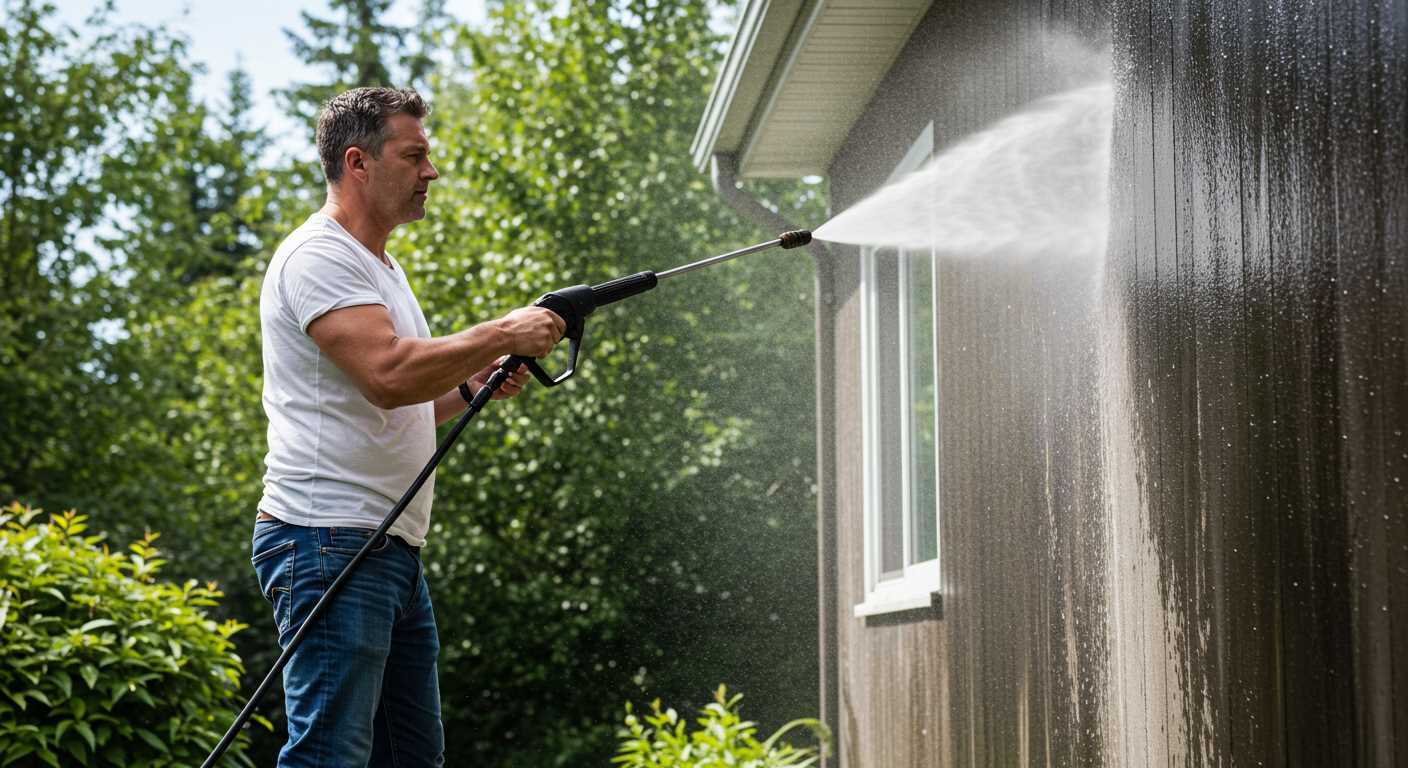
- In scenarios where access to water supply is limited, portable tanks can be an efficient solution.
- These tanks can be filled and transported to the location, providing a consistent water source without lengthy hoses.
3. Pressure Booster Pumps
- Incorporate a booster pump to maintain pressure over longer distances. This can compensate for pressure loss encountered with longer setups.
- Ensure compatibility with existing equipment to avoid performance issues.
4. Quick-Connect Systems
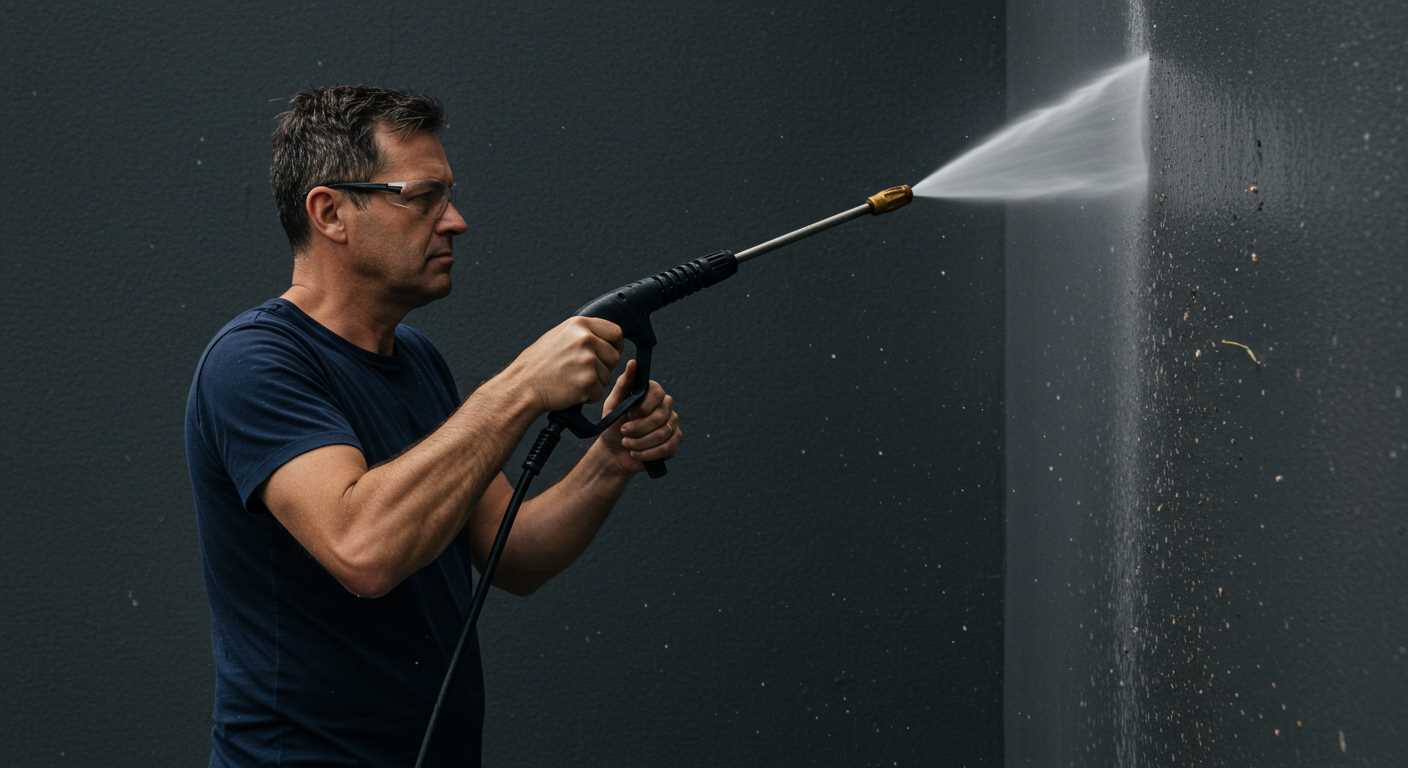
- Using a quick-connect system allows for rapid setup changes, making it simpler to switch between tasks or adapt to different spaces.
- These systems often come with various attachments for specific needs, increasing overall versatility.
Each of these alternatives can provide solutions that enhance the overall cleaning experience while maintaining efficiency and effectiveness. Choose the method that best suits your specific needs, keeping in mind factors like accessibility, pressure maintenance, and ease of setup.
Safety Considerations When Joining Hoses
Prioritise personal protective equipment. Use safety goggles and gloves to prevent injuries from splashes or accidental bursts. Ensure the working area is free of obstacles and wet surfaces to avoid slips.
Pressure and Temperature Compliance
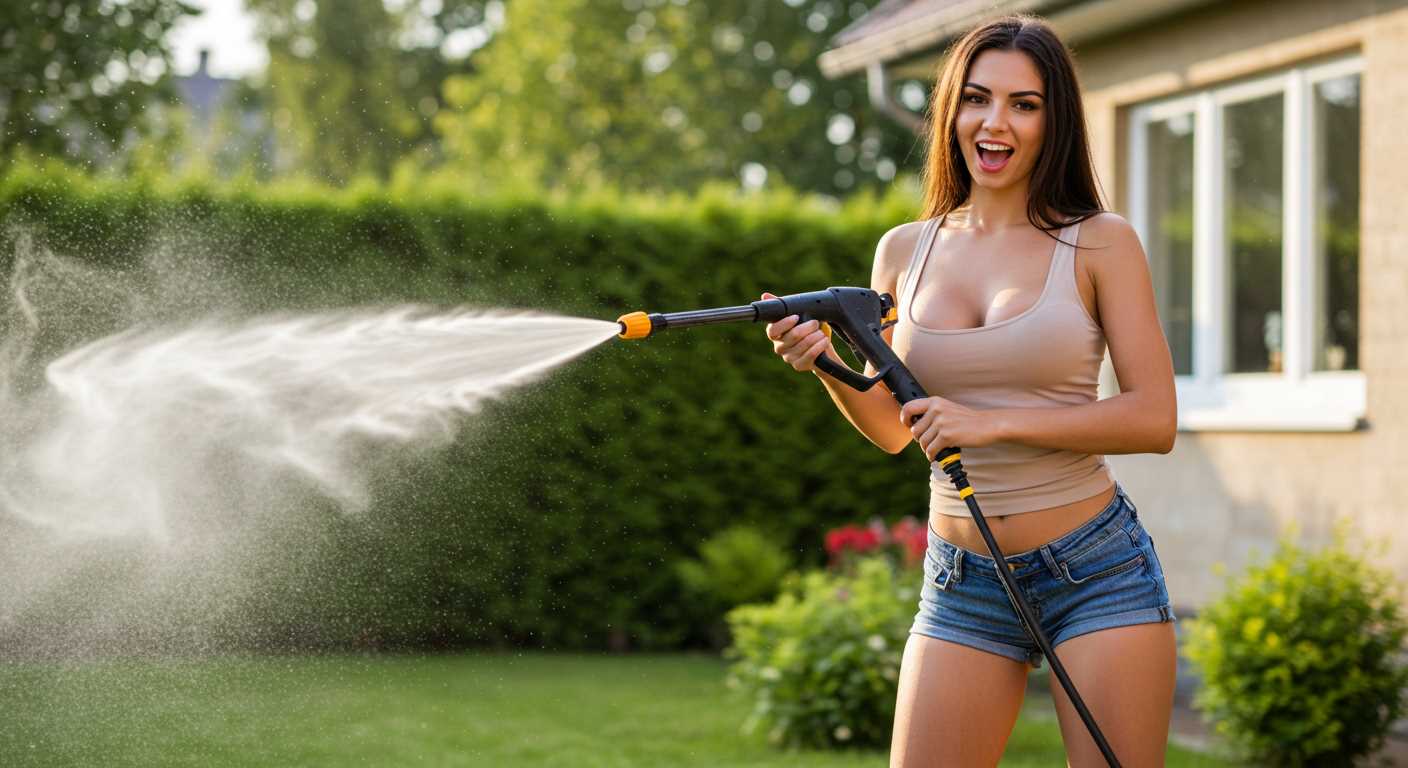
Always check the operational pressure ratings and temperature limits of both pipes. Matching these specifications is crucial to avoid structural failure. Mismatched hoses can result in leaks or dangerous bursts during operation.
Leak Prevention and Maintenance
Before commencing any work, inspect the connectors and valves for wear. Properly tightened connectors can significantly reduce the risk of leaks. Regularly test for leaks by applying soapy water to the junction and observing for bubbles.
| Safety Measure | Description |
|---|---|
| Protective Gear | Wear goggles and gloves to safeguard against injuries. |
| Pressure Check | Ensure hoses are rated for similar pressure levels to prevent failure. |
| Inspection | Regularly examine connectors and valves for signs of wear or damage. |
| Leak Testing | Use soapy water to detect leaks at connections. |
Maintain attention to the environment. Be aware of surrounding people and equipment, ensuring no one is at risk of getting sprayed or injured by high-velocity water flow. Always turn off the water supply and disconnect the hose when not in use to prevent accidental activation.


